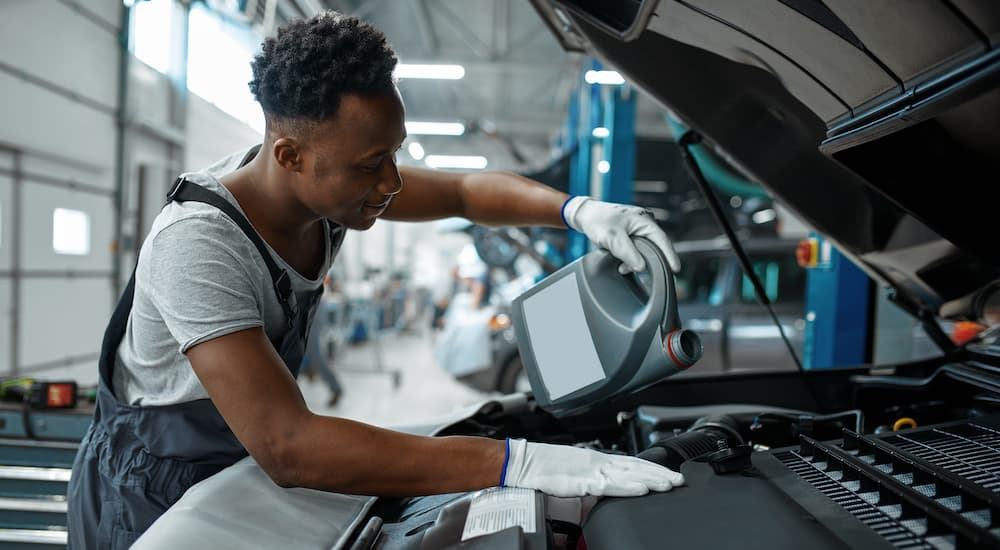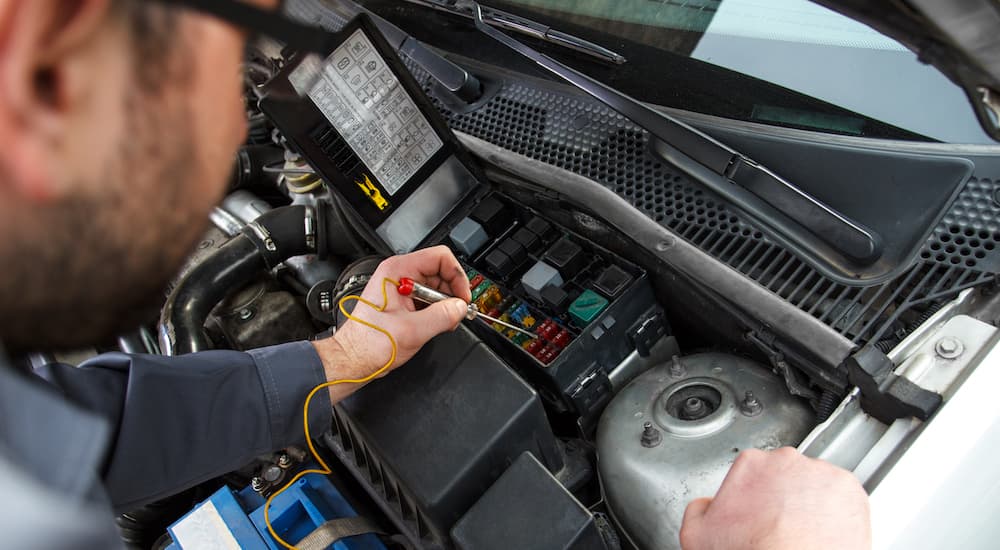You would be hard-pressed to find a brand more respected in terms of reliability than Honda. This Japanese manufacturer has always exhibited the perfect blend of performance and practicality, producing vehicles that are fuel-efficient, sustainable, safe, and sporty. Very few models have gained the fame and admiration of the Honda Civic, which is one of the most popular cars on the road. With variants ranging from the practical to the performance-ready, there is a Civic for virtually every driver. But like any other vehicle, having routine service performed at regular intervals is essential to recouping a return on your investment. Today, we’ll be going over some common Honda car repairs to stay on top of and discussing how important they are to the longevity of your Civic and the sustainment of your quality of life on the road.
Going the Distance for Less Money
Much has been made about the superior quality of vehicles available from Honda. While the ownership of any car necessitates having service performed at regular intervals, the Honda Civic has a long-standing reputation for being able to last a long time while incurring minimal repair costs. As long as you stay on top of basic maintenance, the odds of needing unexpected repairs are very low. It is almost unheard of for major powertrain components to fail in a Civic unless they have been badly neglected.
While the frequency of basic maintenance will depend heavily upon your driving habits and how often you’re behind the wheel, this reputation for reliability is a great indication of the staying power that Honda has in terms of sustainability. A low annual repair cost combined with economical fuel consumption means you’ll be getting more and paying less. Even when something goes wrong, repairing a Civic is usually inexpensive as parts are affordable and easily found. Now we’ll be shifting gears to look at the most common repairs your Civic will need to sustain itself.

Common Services and Repairs
Like most other vehicles, the two most common services you’ll need to perform on your Honda Civic are oil changes and tire rotation. These are rudimentary steps to ensuring the quality of your vehicle. But because they’re the most common, we’ll take a few moments to explain the benefits of each.
The engine that powers your Civic is a collection of mechanical parts working together at high speeds. This process, as you most likely learned in science class, creates friction. As such, having the parts properly lubricated ensures the effective operation of your engine; this is done with oil. It’s generally recommended that you get your oil changed every 7,500 miles or one year, although that recommendation will vary depending on your driving habits, where you live, and your Civic’s specifications.
Using synthetic motor oil is always recommended. It may be more expensive, but synthetic oil lasts longer and works to remove the deposits that build up in your engine. When you get your oil changed, it’s also advised to have your tires rotated. By balancing and rotating your tires at the same time you have your oil changed, the tread on your tires will wear more evenly, which will extend the life of your tires.
The next item that needs constant attention throughout the years that own your Honda Civic is its brakes. While you might not think of them too often, the brakes are used during every drive. Like your engine, the brakes produce a great deal of friction whenever they’re utilized to minimize speed or come to a complete stop. The first line of defense in proper brake maintenance is your brake pads. How often you replace them depends upon how often you drive and the type of traffic you navigate on a regular basis. For example, if you live in a city that has a lot of stop-and-go traffic, your brake pads will likely need to be replaced on a more regular basis. On average, you should plan on getting them examined every 10,000 miles.
Of course, pads are not the only part of your braking system that requires attention. It’s important to regularly have your braking system inspected by a certified technician. There are several parts involved, and each one needs to be in working order for your brakes to function. Depending upon the geographic location in which you live, it’s considered a good idea to have your brake fluid checked before warm weather arrives. Brake fluid can heat up during warm temperatures and can trap moisture over time. The brake rotors should also be checked regularly and replaced if they begin to wear out or become warped.
Electrical Repairs and Diagnostics
Today’s vehicles are more complex than they’ve ever been. There are a variety of onboard computers, sensors, and monitoring systems to ensure that your Honda Civic runs like a well-oiled machine. One of the most common reasons people bring in their vehicle to a repair shop is because of the mysterious Check Engine light. If this occurs, one of the best things you can do is bring in your Civic for what’s known as a diagnostics test. With the aid of computer analysis, a technician can deduce if there’s a problem with your vehicle’s electrical components or a simple sensor malfunction.
Some of the common issues that can throw a Check Engine light are problems with the oxygen or airflow sensors. One of the essential components of your engine’s operation is the air it intakes. The airflow sensor measures how much air is being delivered to the engine. This oxygen sensor is an imperative part of your Civic’s operation. If it is left unchecked, it can have an adverse effect on the power and fuel efficiency of your vehicle.
A diagnostics test can also check for problems you might not immediately notice, such as a misfiring engine or a possible exhaust leak. While having a diagnostic check isn’t required as regularly as an oil change and tire rotation, having one performed annually can be an excellent way to stay ahead of any potential major repairs that might occur. A fundamental rule of repairs and tune-ups such as these is “pay a little now or pay a lot later.”

So Common and So Cheap: A Final Word on Honda Civic Maintenance
The various repairs and routine services we went over today are some of the things you can expect to encounter when owning a Honda Civic. In case you’re wondering, we started our examination with the low cost of Civic maintenance to demonstrate just how simple it is to get the most out of your purchase. The road of life is one that can be unpredictable at times, and more often than not, surprises will occur when you least suspect them to. This is why routine maintenance at regular intervals is so important.
By taking preventative measures, you’ll be sustaining your vehicle’s longevity. An experienced technician who performs inspections and diagnostics will be able to notice any potential problems that might be developing, and they’ll be able to advise you of a solution that can prevent them from becoming a major hindrance. Common repairs are usually inexpensive, and as long as they’re taken care of at the regular intervals specified, you’ll reap the benefits of your Honda Civic for many years. A Honda Civic is an investment, and by taking proper care of it, you’re guaranteed to recoup a sizable return.

